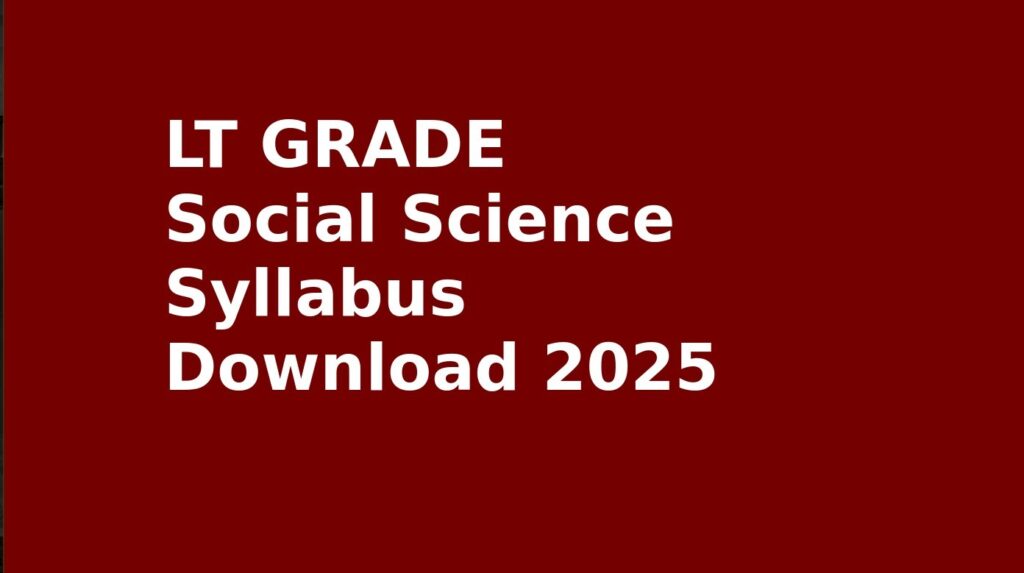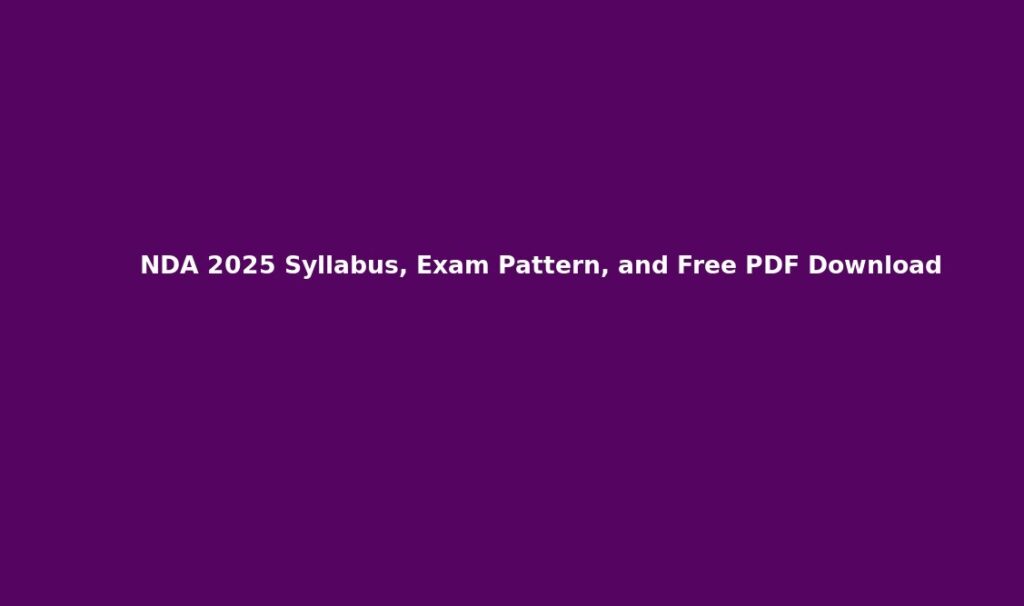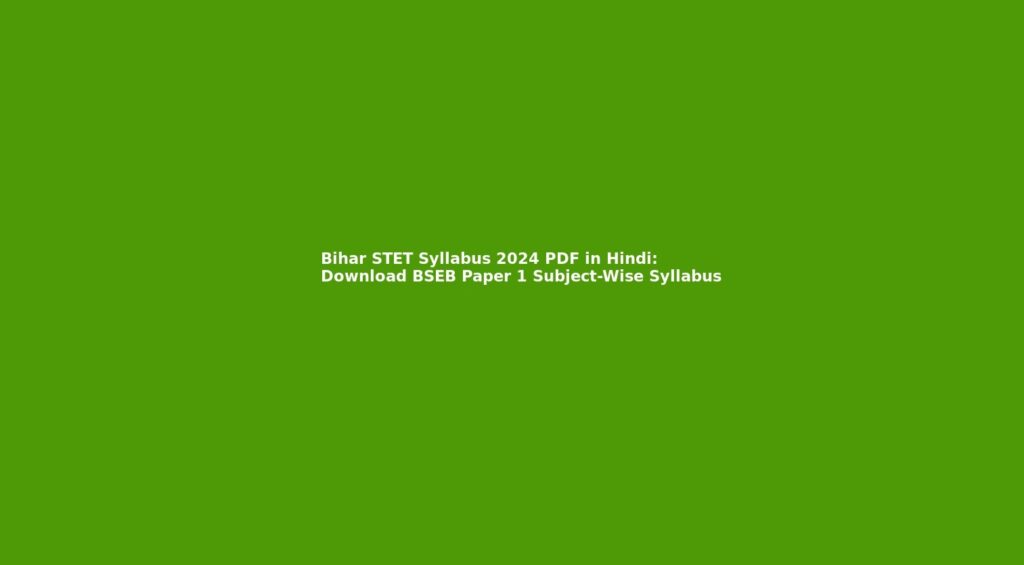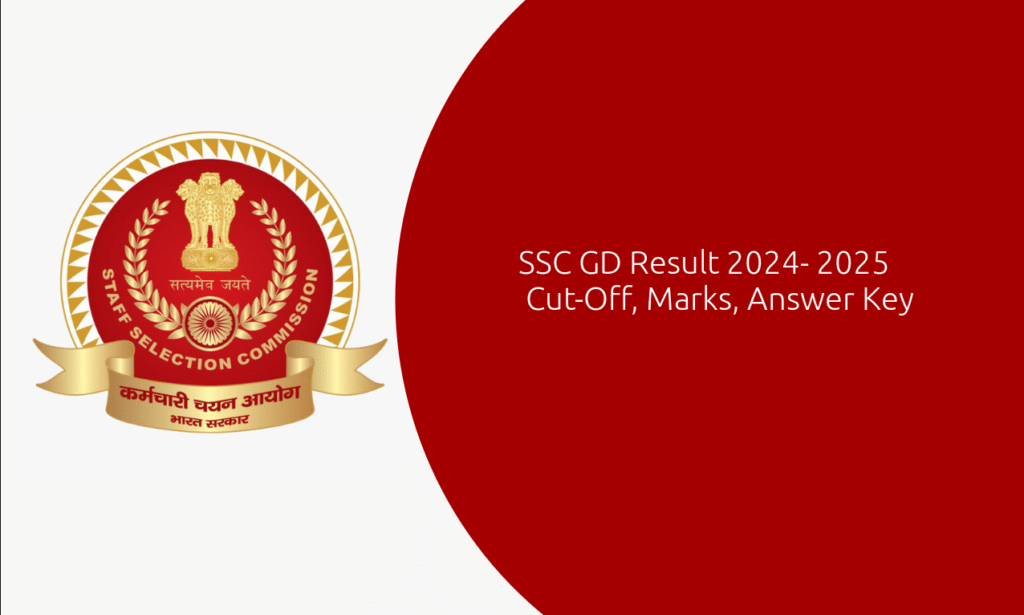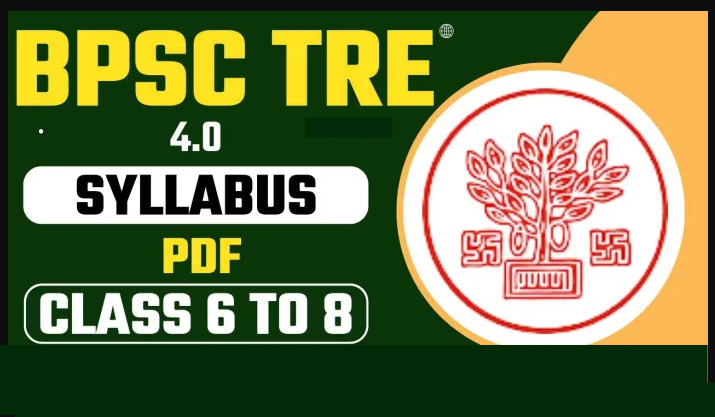As Prelims Exam of UPPSC ARO/RO was held on 27 July 2025 and Answer key is releaed on Official Website of UPPSC , The Uttar Pradesh Public Service Commission (UPPSC) Review Officer (RO) and Assistant Review Officer (ARO) Mains examination represents a critical juncture for aspirants seeking prestigious administrative roles within the Uttar Pradesh government. This comprehensive guide serves as a foundational resource, offering a meticulously researched strategy to navigate the Mains exam successfully. It delves deep into the exam structure, syllabus intricacies, proven study techniques, and essential resources, providing a clear pathway for dedicated candidates. In this article we will cover UP ARO/RO Mains Exam 2025 Strategy

Table of Contents
Understanding the UP ARO/RO Mains Exam 2025
A thorough understanding of the examination pattern forms the foundational step for effective preparation. TheUP ARO/RO Mains Exam 2025 is structured into three distinct papers, each with specific marks, durations, and question formats. The total marks for the Mains examination are 400 in UP ARO/RO Mains Exam 2025.
The Mains examination necessitates a fundamental shift in preparation strategy compared to the Prelims. While the preliminary stage primarily assesses objective knowledge and speed , the Mains demands a blend of objective recall, analytical thinking, structured answer writing, and deep conceptual clarity. This means candidates cannot simply extend their Prelims approach; they must consciously transition their study methods to incorporate extensive answer writing practice, essay structuring, and detailed conceptual understanding, particularly for General Studies and the Hindi Essay. Developing writing speed and clarity becomes a paramount skill, often overlooked by those accustomed to multiple-choice questions.
Detailed Breakdown of Papers, Marks, and Time Duration UP ARO/RO Mains Exam 2025
- Paper 1: General Studies This paper is objective in nature, comprising 120 questions for a total of 120 marks, to be completed within 120 minutes (2 hours). It carries significant weight and assesses a broad range of general knowledge.
- Paper 2: General Hindi and Drafting This paper is divided into two distinct parts:
- Part 1: Conventional (Descriptive): This section is allotted 100 marks and must be completed within 150 minutes (2 hours 30 minutes). It focuses on practical Hindi drafting skills.
- Part 2: General Vocabulary (Objective): This part is objective, consisting of 60 marks, and has a strict time limit of 30 minutes. It primarily tests vocabulary and grammar.
- Paper 3: Hindi Essay This is a descriptive paper requiring candidates to write three essays, totaling 120 marks, within 180 minutes (3 hours). Each essay contributes 40 marks and has a word limit of 600 words.
A negative marking of one-third (0.33) mark is applicable for every incorrect answer in the objective-type papers (Paper 1 and Paper 2 Part 2). Furthermore, for specific posts like Samiksha Adhikari (Hindi) and (Urdu), an additional qualifying paper of 100 marks is administered, for which candidates must secure at least 33% to pass. The Typing/Skill Test is a crucial, qualifying stage specifically for Assistant Review Officer (ARO) posts, requiring a minimum speed of 25 words per minute in Hindi (Devnagari script). An “O” Level Computer Course certificate is often mandatory for specific roles.
General Hindi – UP ARO/RO Mains Exam 2025
The General Hindi and Drafting paper presents a unique strategic advantage due to its dual nature. The objective part, focusing on vocabulary and grammar, is consistently observed to be “easier” or “easy to moderate” compared to General Studies in previous examinations. This predictability and structured nature allow candidates to achieve high accuracy and marks, which can significantly boost their overall Mains scores and potentially compensate for any slightly lower performance in the more challenging General Studies paper. Therefore, dedicating sufficient, focused practice to Hindi grammar and vocabulary is a highly rewarding endeavor.
The Hindi Essay paper is another critical component of UP ARO/RO Mains Exam 202 that can significantly differentiate candidates. Being entirely descriptive, it demands analytical thinking, structured argumentation, and strong Hindi expression. This section is less about factual recall and more about the synthesis of knowledge and persuasive presentation. Candidates who excel in this paper can distinguish themselves from others who may struggle with descriptive writing, even if they possess strong factual knowledge. Consequently, dedicated practice in essay writing, including selecting topics from diverse themes, structuring arguments, and adhering to word limits, is paramount. This paper assesses not just knowledge, but the ability to articulate thoughts coherently and persuasively in Hindi.
Table 1: UP ARO/RO Mains Exam Pattern Overview This table provides a quick, clear reference for aspirants to understand the structure, weightage, and time allocation for each paper. By presenting the breakdown visually, candidates can immediately identify high-weightage papers and time-constrained sections, informing their study plan and mock test strategy.
| Paper | Subject | Total Questions | Total Marks | Time Duration | Nature |
| Paper 1 | General Studies | 120 | 120 | 120 minutes | Objective |
| Paper 2 | General Hindi and Drafting | ||||
| Part 1: Conventional | (Descriptive) | 100 | 150 minutes | Conventional | |
| Part 2: General Vocabulary | 60 | 60 | 30 minutes | Objective | |
| Paper 3 | Hindi Essay | 3 | 120 | 180 minutes | Subjective |
Export to Sheets
Deep Dive into the UP ARO/RO Mains Syllabus of UP ARO/RO Mains Exam 2025
A comprehensive understanding of the syllabus is paramount for targeted preparation. The Mains syllabus largely mirrors the Prelims for General Studies but demands a deeper, more analytical approach, especially for the conventional Hindi and Essay papers.
General Studies (Paper 1): The Broad Spectrum
This paper covers a broad spectrum of subjects, testing a candidate’s general awareness and understanding. Core subjects include the History of India (encompassing Ancient, Medieval, and Modern periods, along with the Indian National Movement), Geography (India & World Geography, Natural Resources, Population, Ecology, and Urbanization in the Indian Context), Indian Polity, Economy & Culture, Indian Agriculture, Commerce & Trade, General Science (covering Physics, Chemistry, and Biology basics), and Current Events of National and International Importance. Crucially, it also includes
Specialized Knowledge regarding Education, Culture, Agriculture Industry, Trade, Living & Social Traditions of Uttar Pradesh.
Previous year analyses consistently indicate a “moderate” difficulty level for General Studies. Recurring and “trending topics” often include Recent Government Schemes, International Organizations, and particularly Uttar Pradesh-Based General Knowledge. Polity & Constitution, and Current Affairs also consistently hold significant weightage.
The consistent emphasis on “Specialised Knowledge regarding Education, Culture, Agriculture industry, Trade, Living and Social Traditions of Uttar Pradesh” across multiple sources indicates that UP-specific knowledge(UP Special For Samiksha Adhikari/Sahayak Samiksha Adhikari Main Exam 2025) is not merely a supplementary section but a critical component of the General Studies paper. This specific focus suggests that questions are likely to be direct and factual, rewarding targeted study.

Mastering this section can provide a significant competitive edge, as many aspirants might focus more on general national topics. Therefore, candidates cannot rely solely on general Indian General Knowledge; they must dedicate focused time to study Uttar Pradesh’s history, geography, economy, culture, and especially recent government schemes and administrative developments within the state. This specific focus allows examiners to assess a candidate’s suitability for roles within the state administration.
Table 4: Key General Studies Topics & Importance This table provides a prioritized view of General Studies topics, informed by previous exam trends. By summarizing these priorities, it directs study efforts to maximize returns, helping aspirants allocate study time efficiently, focusing on high-yield topics like UP-specific GK and Current Affairs, while ensuring broad coverage of core subjects.
| Subject/Topic | Key Areas | Importance/Weightage (Based on Trends) |
| Uttar Pradesh Specific GK | Education, Culture, Agriculture, Industry, Trade, Living & Social Traditions of UP; UP Govt Schemes, History, Geography, Economy | High (Critical for differentiation) |
| Current Events (National & International) | Recent Government Schemes, International Organizations, National/International Affairs, Awards, Sports, Economy, Environment | High (Trending & Integrated) |
| Indian Polity & Constitution | Basic knowledge of Indian constitution, political system, Articles, Supreme Court judgments, amendments | High |
| History of India (Ancient, Medieval, Modern) | Indian National Movement, 1857 revolt, Gandhian era, leaders & movements, social, economic, political aspects | High |
| Geography & Natural Resources (India & World) | Physical geography, climate, soils, rivers, minerals, population, ecology, urbanization | Moderate to High |
| Indian Economy & Culture | Economic issues, planning, budget, agriculture, commerce, trade, cultural heritage | Moderate |
| General Science | Basic concepts, Physics, Chemistry, Biology in everyday life | Moderate |
| General Intelligence | Logical reasoning, analytical ability | Moderate |
General Hindi & Drafting (Paper 2) UP ARO/RO Mains Exam 2025: Mastering Language Proficiency
This paper is designed to assess a candidate’s proficiency in Hindi grammar, vocabulary, sentence structure, and comprehension, which is highly relevant for the administrative duties of RO/ARO roles.
- Part 1: Conventional (Descriptive) – 100 Marks UP ARO/RO Mains Exam 2025
- Heading, Precis, and Explanation of Underlined Parts from a Given Passage: This section tests comprehension and summarization skills, requiring candidates to derive a suitable heading, write a concise precis, and explain specific underlined portions of a passage. (21 Marks: 3 for Heading, 6 for Precis, 12 for Explanation).
- Precis in Tabular Form of any Given Government Letter: This component requires understanding official communication formats and the ability to summarize a government letter in a tabular format. (15 Marks).
- Correspondence: This part involves the practical drafting of various administrative documents, including Official/Demi-Official Letters, Office Memos/Memos/Circulars, Communiques/Annotations & Reports/Reminders. (24 Marks).
- Definition Vocabulary (Administrative and Commercial): This section focuses on specialized terminology, requiring translation from English to Hindi (5 words), Hindi to English (5 words), and understanding of Idioms & Phrases (5 only). (30 Marks: 10 each for English to Hindi, Hindi to English, Idioms & Phrases).
- Computer Knowledge: Basic computer literacy relevant to office work is tested here. (10 Marks).
- Part 2: General Vocabulary (Objective Type) – 60 Marks This part is objective and highly scoring, comprising six questions for each topic, each worth 2 marks, totaling 12 marks per topic.
- Antonyms (Vipreetarthak Shabd): 6 words – 12 Marks.
- One word for several words (Anek Shabdon ke Liye Ek Shabd): 6 words – 12 Marks.
- Sentence and Correction in Framing (Vakya Evam Vartani Shuddhi): 6 sentences – 12 Marks.
- Derived by a noun & adjective (Visheshya Aur Visheshan): 6 words – 12 Marks.
- Same usage and same nature words (Paryayavachi Shabd): 6 words – 12 Marks.
Table 2: General Hindi & Drafting (Part 1 & 2) Topic-wise Marks Distribution This table provides granular detail for the Hindi paper, which is a high-scoring section. It explicitly shows the weightage of each sub-topic, allowing for targeted preparation and efficient allocation of study time. By clearly mapping marks to specific sub-topics, candidates can prioritize maximizing scores in predictable, high-weightage objective sections (like vocabulary) and dedicate sufficient practice to conventional drafting, where precision is key.
| Paper 2 Part | Topic/Section | Specific Sub-topics | Marks |
| Part 1: Conventional | Heading, Precis, Explanation | Heading (3), Precis (6), Explanation (12) | 21 |
| Precise in Tabular Form | Government Letter | 15 | |
| Correspondence | Official/Demi-Official, Office Memo/Circular, Communique/Annotation & Reports/Reminder | 24 | |
| Definition Vocabulary | English to Hindi (10), Hindi to English (10), Idioms & Phrases (10) | 30 | |
| Computer Knowledge | Basics, Terminology, Office Usage | 10 | |
| Part 2: Objective | Antonyms | 6 words | 12 |
| One word for several words | 6 words | 12 | |
| Sentence & Correction in Framing | 6 sentences | 12 | |
| Derived by a noun & adjective | 6 words | 12 | |
| Same usage & nature words | 6 words | 12 |
Export to Sheets
Hindi Essay (Paper 3): Articulating Insights of UP ARO/RO Mains Exam 2025
Aspirants are required to write a total of three essays, choosing one topic from each of three distinct sections. Each essay is worth 40 marks, with a word limit of 600 words.
- Section 1 Themes: Literature and Culture, Political Field, Social Field.
- Section 2 Themes: Science, Ecology and Technology, Agriculture and Commerce, Economic Field.
- Section 3 Themes: National and International Events, Natural Calamities (e.g., Earth stumbling, Cyclones, Earthquakes, Floods, Drought), National Department Plans.
The broad thematic categories for the essay section imply that a well-rounded understanding of current affairs and socio-economic issues, coupled with strong analytical and writing skills, is more crucial than deep specialization in one narrow area. This section assesses a candidate’s ability to synthesize information, present a coherent argument, and articulate thoughts effectively within a given word limit.
Table 3: Hindi Essay Sections and Word Limits This table clearly outlines the thematic breadth and structural requirements of the essay paper, which is a significant descriptive component. It provides a concise overview of the essay choices and constraints, which is vital for planning essay practice and helps candidates identify their strong and weak thematic areas for essay writing, allowing them to practice choosing topics strategically and managing word count effectively under timed conditions.
| Essay Section | Themes/Topics | Total Marks (per essay) | Word Limit (per essay) |
| Section 1 | Literature and Culture, Political Field, Social Field | 40 | 600 words |
| Section 2 | Science, Ecology and Technology, Agriculture and Commerce, Economic Field | 40 | 600 words |
| Section 3 | National and International Events, Natural Calamities, National Department Plans | 40 | 600 words |
Export to Sheets
Strategic Preparation for Each Paper of UP ARO/RO Mains Exam 2025
Success in the UP ARO/RO Mains examination demands a multi-faceted preparation strategy, tailored to the unique requirements of each paper.
General Studies: Comprehensive Coverage with a UP-Centric Lens
The General Studies paper for Mains largely mirrors the Prelims syllabus but necessitates a deeper, more analytical understanding. A key approach involves integrating static subjects with current affairs. For instance, connecting recent Supreme Court judgments to topics in Indian Polity or analyzing current economic policies within the framework of the Indian Economy syllabus can make answers more robust and relevant.
Uttar Pradesh-specific knowledge is a non-negotiable aspect of this paper. Candidates must dedicate focused study to UP’s history, geography, economy, culture, and particularly recent government schemes (such as the One District One Product – ODOP scheme) and administrative developments. Utilizing official UP Government portals and dedicated UP current affairs resources is essential for accurate and up-to-date information.
For the descriptive nature of Mains, answer writing practice is crucial. Candidates should regularly practice structuring their answers, employing clear headings, bullet points, and even diagrams where appropriate. Incorporating relevant facts, data, and real-life examples is vital to substantiate arguments and add credibility. It is imperative to avoid generic answers; instead, responses should be tailored with specific UP-centric data to demonstrate a localized understanding.
General Hindi & Drafting: Precision and Practice UP ARO/RO Mains Exam 2025
The General Hindi and Drafting paper requires both linguistic precision and practical application.
- Conventional Part (Part 1):
- Precis Writing & Correspondence: Consistent practice in summarizing passages and government letters accurately and concisely is vital. Aspirants must familiarize themselves with the standard formats for official letters, memos, circulars, and reminders, as these are directly tested.
- Administrative Vocabulary: Mastering English to Hindi and Hindi to English translations of administrative and commercial terms, alongside common idioms and phrases, demands consistent memorization and application.
- Computer Knowledge: A foundational understanding of computer basics, terminology, and their usage in office environments is necessary.
- Objective Part (Part 2):
- Grammar & Vocabulary: This section of UP ARO/RO Mains Exam 2025 Paper is highly scoring and often observed to be relatively easier than General Studies. Candidates should focus on mastering Antonyms, One-word substitutions, Sentence Correction, Noun & Adjective derivation, and Same usage & nature words. Consistent practice with previous year papers and mock tests is key to achieving high accuracy and maximizing scores in this predictable section.
Hindi Essay: Structured Articulation UP ARO/RO Mains Exam 2025
The Hindi Essay paper requires a blend of broad knowledge and refined writing skills.
- Topic Selection: Candidates must strategically choose one topic from each of the three diverse sections (Literature/Political/Social; Science/Agriculture/Economic; National/International Events/Calamities/Development Plans). The selection should be based on areas where the candidate possesses strong factual knowledge and can articulate a coherent and well-supported argument.
- Structuring Essays: Effective essay writing involves planning with a clear introduction, well-developed body paragraphs that logically present arguments, and a strong conclusion. The use of logical connectors is essential to ensure a smooth flow of ideas and guide the examiner through the narrative.
- Content & Word Limit: Essays must be rich in content, include relevant examples, and strictly adhere to the 600-word limit per essay. Practicing writing under timed conditions is crucial for improving both speed and quality.
- Current Affairs Integration: Weaving in relevant current events and government schemes can make essays more contemporary, impactful, and demonstrate a deeper understanding, especially for topics related to economy, social issues, and national events.
- UPSC EPFO Notification 2025 To Be Released Soon: Exam Pattern, Syllabus, How to Download Notification
- UGC NET Syllabus 2025 for Paper 1 & Paper 2 – Download PDF
The interplay between objective knowledge and descriptive skills is a critical aspect of Mains preparation. While strong objective knowledge provides the factual base necessary for descriptive answers, factual recall alone is insufficient for the conventional Hindi and Essay papers. These sections demand the development of articulation, structuring, and analytical skills. Therefore, a balanced approach to both types of preparation for UP ARO/RO Mains Exam 2025 is crucial for overall Mains success. Information learned for objective General Studies can be effectively leveraged in Hindi Essays and vice-versa. The key lies in practicing the conversion of factual knowledge into well-structured, analytical written responses, highlighting the need for dedicated answer writing practice sessions beyond mere content consumption.
Time management serves as a significant performance multiplier in the Mains examination. The exam has strict section-wise time limits , and various sources emphasize its importance for competitive exams. Effective time management during preparation, such as following a structured study plan or utilizing techniques like the Pomodoro method, builds discipline and speed. Applying these time management principles during the actual exam, by allocating time per question and avoiding overspending on any single item, ensures the completion of the paper and maximizes attempts in high-scoring sections. This directly impacts the overall score by preventing missed questions due to time constraints.
Effective Study Techniques and Resources For UP ARO/RO Mains Exam 2025
A well-rounded preparation strategy combines effective study techniques with access to quality resources.
Crafting a Personalized Study Plan and Daily Routine
Creating a detailed and realistic study schedule is fundamental, breaking down subjects into specific periods. It is important to allocate sufficient time for each subject based on its difficulty and importance. A balanced routine that includes different subjects daily helps maintain interest and prevents burnout.
Importance of Time Management and Regular Mock Tests
Regular practice with full-length mock tests and previous year’s papers under timed conditions is crucial. This simulation helps improve speed, accuracy, and overall time management skills for the actual exam. After each mock test, a thorough analysis of results is necessary to identify weak areas and make targeted improvements.
Proven Revision Strategies
Effective revision goes beyond passive reading. Techniques such as Blurting, where candidates write down everything they know about a topic, and the Feynman Technique, which involves explaining concepts in simple terms, actively test memory and reinforce learning. Spaced repetition, reviewing information at increasing intervals (e.g., using the 2-3-5-7 method), boosts long-term retention. Utilizing mind maps, flowcharts, and concise notes with keywords facilitates quick revision and better understanding. Flashcards are also effective for memorizing smaller chunks of information. Regular revision sessions, scheduled weekly and monthly, are essential. It is advisable not to introduce new topics too close to the examination date, dedicating the final 15 days entirely to revision and mock tests.
Recommended Books and Online Resources
Selecting quality study material is paramount. Candidates should focus on a limited set of high-quality, comprehensive resources rather than accumulating excessive materials. This approach leads to a deeper understanding and avoids information overload, preventing confusion and allowing for focused, repeated revision, which is more effective than superficial coverage of many sources.
- General Studies:
- History: Spectrum (Modern History), R.S. Sharma (Ancient History), S.K. Pandey (Modern History).
- Polity: M. Laxmikanth.
- Economy: Ramesh Singh.
- Geography: Majid Hussain (India & World Geography), D.R. Khullar.
- General Science: Lucent’s General Science, NCERTs.
- UP Specific GK: “Know Your State: Arihant” or other dedicated UP-specific books.
- General Hindi: P.N. Pandey, Vasudev Nandan Shukla.
- Current Affairs: Daily newspapers (The Hindu, Indian Express), monthly magazines (Yojana, Kurukshetra, Pratiyogita Darpan, Drishti Current Affairs Today), and official government sources like Press Information Bureau (PIB), NITI Aayog Reports, and the UP Government Official Portal.
- Drafting & Computer Knowledge: M.K. Agarwal (Noting and Drafting), S.C. Gupta (A Handbook for Letter Writing), and Lucent’s Computer Book.
- Previous Year Papers & Mock Tests: These are essential for practice. Reputable coaching institutes such as EduGorilla, Adda247, Drishti IAS, and The IAS Hub offer mock tests and study materials.
Tips for Current Affairs Preparation For UP ARO/RO Mains Exam 2025
Current affairs preparation for UP ARO/RO Mains Exam 2025 should be dynamic and integrated. Candidates should rely on credible newspapers, government reports, and monthly compilations. For every important event, applying the “5W1H” approach (What, When, Where, Who, Why, and How) ensures comprehensive understanding. It is vital to integrate current events with relevant static syllabus topics (Polity, Economy, Geography, etc.) to enhance analytical depth in answers. Special attention must be paid to UP-specific current affairs, including state policies, governance, and administrative developments.
Importance of Answer Writing Practice and Hindi Typing (for ARO)
Regular answer writing practice is crucial for the Mains examination. This practice should focus on structuring answers effectively, using clear headings, and incorporating relevant facts and data. For ARO aspirants, consistent Hindi typing practice is mandatory, with a required speed of 25 words per minute in Hindi (Devnagari script), using either Remington Gail or Inscript keyboard layouts.
The role of physical and mental well-being in sustained preparation cannot be overstated. Several sources explicitly mention prioritizing “Physical and Mental Well-being,” including sufficient sleep, short breaks during study sessions, stress-relieving techniques (such as yoga or meditation), and a balanced diet. Neglecting physical and mental health can lead to reduced concentration, burnout, and decreased learning efficiency. Conversely, prioritizing well-being enhances focus, memory retention, and overall productivity, directly contributing to sustained, effective preparation and better performance on examination day. Aspirants should view self-care not as a luxury but as an integral part of their study strategy, recognizing that a healthy mind and body are foundational for optimal learning and performance under pressure.
Key Takeaways for Success In UP ARO/RO Mains Exam 2025
- Master the Syllabus and Exam Pattern: A deep understanding of the Mains syllabus and pattern is the absolute foundation. Candidates must know precisely what to study and how it will be tested.
- Prioritize Hindi: Leverage the General Hindi paper, particularly the objective vocabulary section, as a high-scoring opportunity. Aim for near-perfect scores in this section to build a strong overall total.
- Embrace Answer Writing: For General Studies and the Hindi Essay, consistent answer writing practice is non-negotiable. Focus on developing strong structure, clarity, and the ability to integrate relevant facts and current affairs effectively.
- UP-Specific Focus: Dedicate significant time to Uttar Pradesh-specific General Knowledge and current affairs. This is a unique and high-yield area that can provide a distinct advantage.
- Strategic Current Affairs: Beyond merely reading current events, analyze them using the 5W1H approach and integrate them with static syllabus topics for deeper understanding and richer essay and answer content.
- Time Management is Key: Practice time management rigorously during both study sessions and mock tests. This discipline is crucial for completing papers efficiently and maximizing scores under examination conditions.
- Quality over Quantity: Choose a limited set of high-quality study materials and revise them thoroughly. Avoid information overload, which can lead to superficial learning.
- Holistic Well-being: Maintain physical and mental health through adequate sleep, regular breaks, and stress-reducing activities. This approach sustains motivation and optimizes learning capacity.
- Practice Consistently: Solve previous year papers and full-length mock tests regularly. Analyze performance meticulously to identify and rectify weaknesses.
- For ARO Aspirants: Do not neglect Hindi typing practice. It is a mandatory qualifying stage that must be cleared.
Conclusion UP ARO/RO Mains Exam 2025
UP ARO/RO Mains Exam 2025 Strategy is a rigorous test of knowledge, analytical ability, and effective communication. Success in this competitive endeavor is not merely a function of intelligence but rather the outcome of a meticulously planned and consistently executed strategy. By deeply understanding the examination pattern and syllabus, prioritizing high-scoring sections like General Hindi, dedicating focused time to answer writing and Uttar Pradesh-specific knowledge, and maintaining a disciplined yet balanced study routine, aspirants can significantly enhance their chances of securing a coveted position. This comprehensive guide serves as a pillar of support, illuminating the strategic path to success in the UP ARO/RO Mains Exam 2025.
